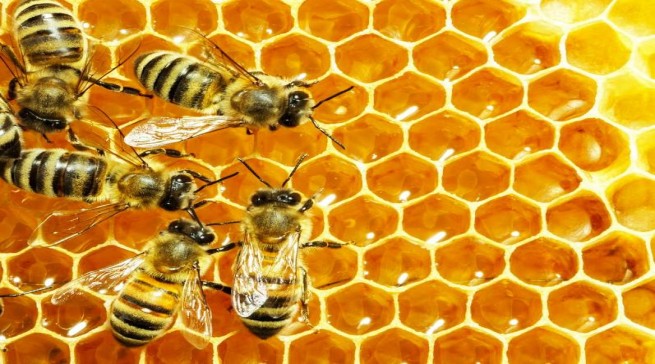World Bee Day ignites motivation among Beekeepers in Gishwati-Mukura National Park
Beekeepers, especially those operating around Gishwati-Mukura National Park, expressed joy over the celebration of the World Bee Day for the first time in Rwanda.
The day aimed to promote the protection of bees and enhance their value due to their essential role in the environment, especially in pollination and preserving the integrity of ecosystems.
“Previously, we believed beekeeping was a man’s job. But as we were trained and empowered, we tried it, fell in love with it, and now we’ve mastered how to care for bees so that they can also benefit us. That’s why we were extremely happy to witness this World Bee Day being celebrated for the first time in Rwanda.”Devota Uwamahoro, one of the female beekeepers from CODACE cooperative, said:“
“This will further boost our confidence and encourage others to join us and take pride in beekeeping.”she added,
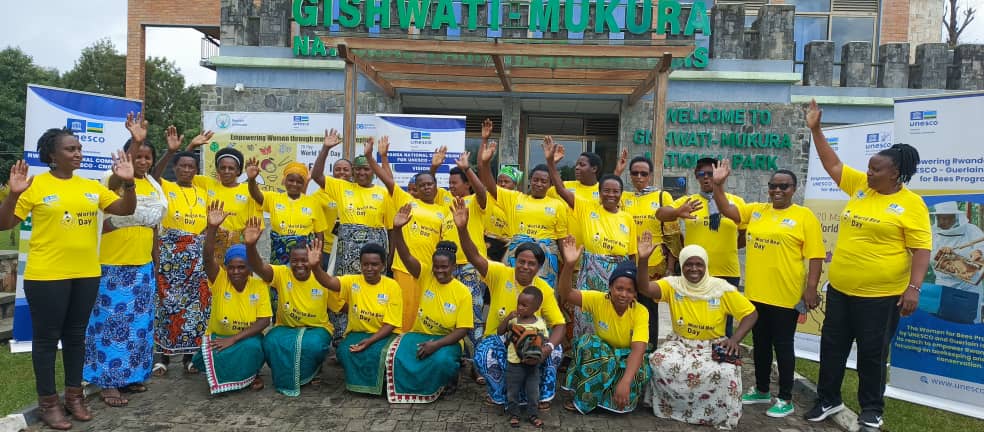
The celebration took place on May 20, 2025, in Rutsiro District under the theme “Bees inspired by nature to nourish us all.” It brought together diverse participants with expertise in bee ecology.
Claudine Nyiranziza, also a member of CODACE cooperative, emphasized how beekeeping had become a broad avenue for personal development for her and her colleagues.
“Beekeeping is a great profession. I’m especially grateful to UNESCO Rwanda, which inspired us to venture into it. Before joining, I was just a small-scale farmer. But now, I can even practice large area agriculture thanks to the capital I raised.”She said:
“I bought livestock which provide manure for my crops, helping me avoid harmful industrial fertilizers that can affect bees. The knowledge we’ve gained on bee conservation is the foundation of our economic growth and it’s clearly visible.”she added,
Consolee Twambazimana, a master planner supporting three women-led beekeeping cooperatives, stated that the women had made significant strides since she began working with them. She noted that their increasing knowledge gives hope for a brighter future.
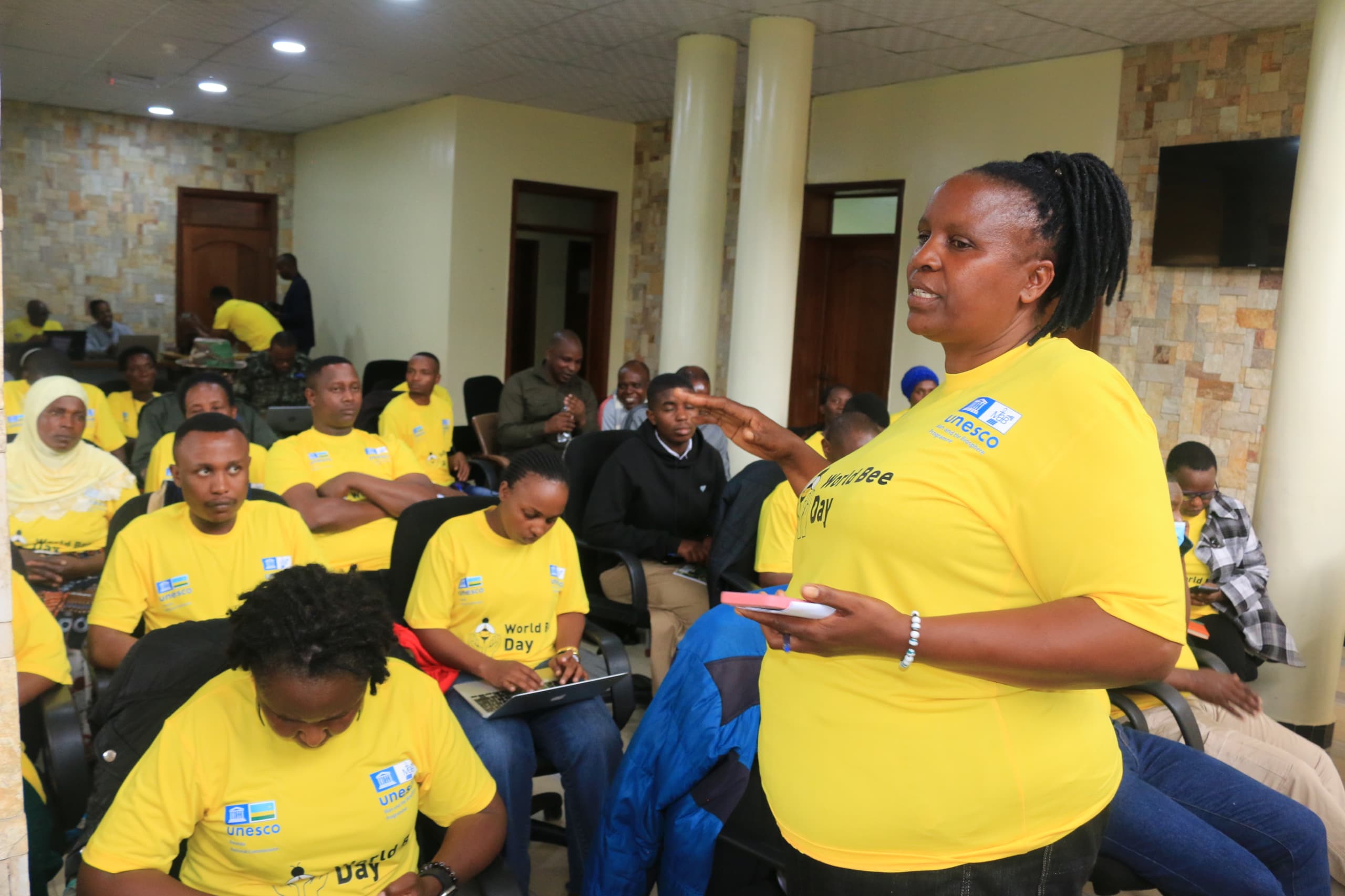
“When I started working with these women’s cooperatives, they were hesitant, thinking beekeeping was a man’s job. Most decisions in their cooperatives required consultation with men first.”she explained,
“Now, they’ve received adequate training on how to manage their bees, how to feed and care for them, and how to sustain their cooperatives for continued growth.”She continued
The leadership of Rutsiro District confirmed that beekeeping is strongly linked to the livelihoods of residents, particularly those living near Gishwati-Mukura National Park.
Emmanuel Uwizeyimana, the District’s Vice Mayor in charge of Economic Development, revealed plans to expand beekeeping projects and support local beekeepers.
“We are fortunate to have a honey processing factory. Beekeepers, whether working independently or through cooperatives, have access to markets. We are also scaling up training to ensure the factory gets enough quality honey to process.”He said
Dr. Marie Christine Gasingirwa, head of Rwanda’s National Commission for UNESCO, emphasized that the benefits of bees are closely tied to the preservation of the environment that sustains them.
“The environment is life,for bees and for us. We must educate youth and women on how they can actively participate in protecting our planet through this interconnected ecosystem.”She said,
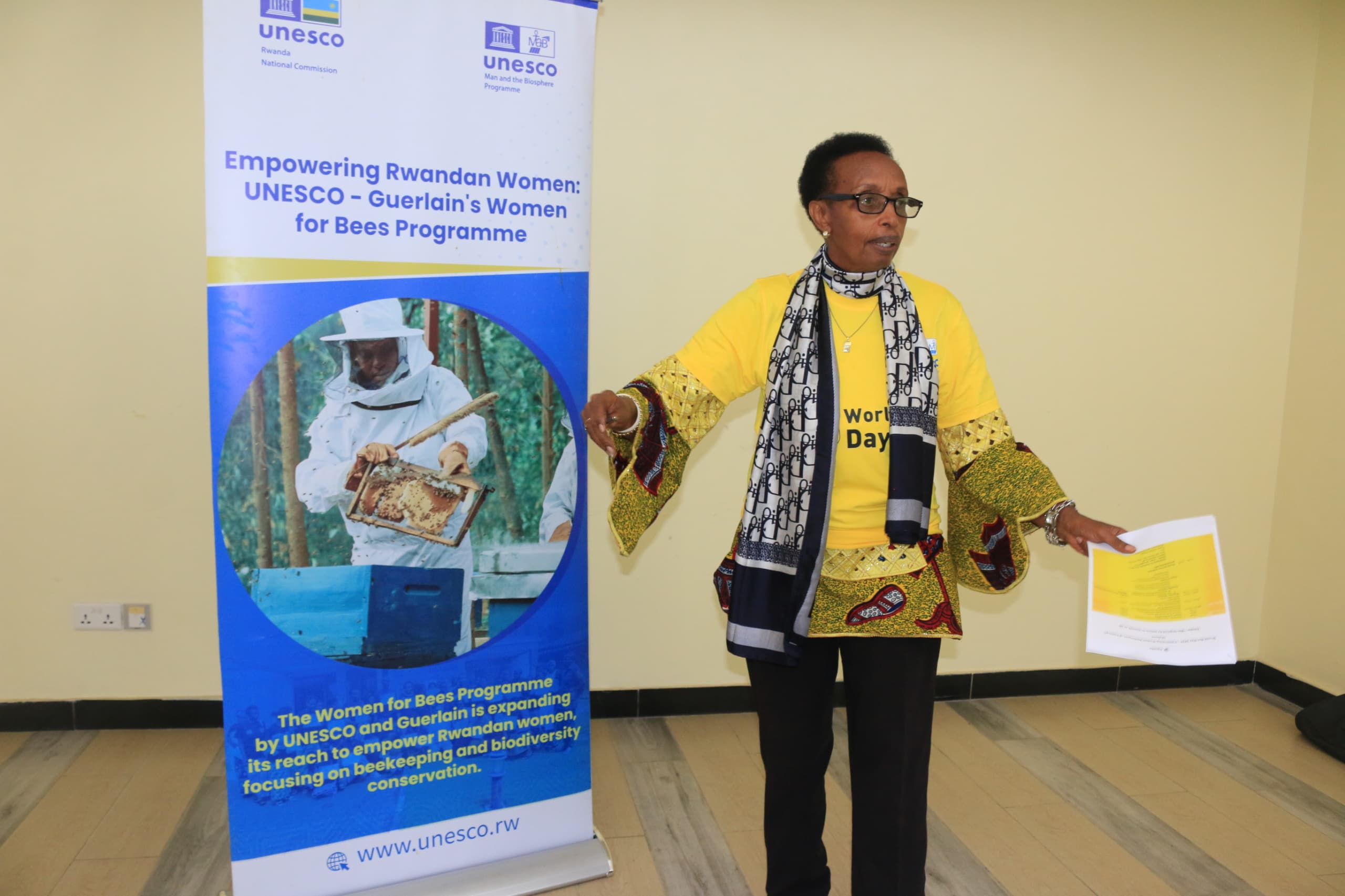
So far, 33 women and 3 men representing three cooperatives focused on sustainable beekeeping have been trained. To continue environmental and bee conservation efforts, young people and students are being engaged to bring fresh energy into the movement.
Pesticides used in agriculture remain a major threat to bee populations, as bees often get poisoned when they forage on treated plants.
Research shows that honey production in Rwanda and across the East African Community (EAC) region has declined in recent years due to factors including pesticide use, climate change, and habitat degradation.
In 2024, Rwanda produced about 7,000 tons of honey, compared to a national production potential of 8,611 tons. However, national demand stands at 17,000 tons annually, revealing a significant production gap.
FAO estimates that bee-related activities contribute between $235–$577 billion annually to agriculture. A study by IPBES (Intergovernmental Science-Policy Platform on Biodiversity and Ecosystem Services) reports that 40% of pollinating insects are at risk of extinction.
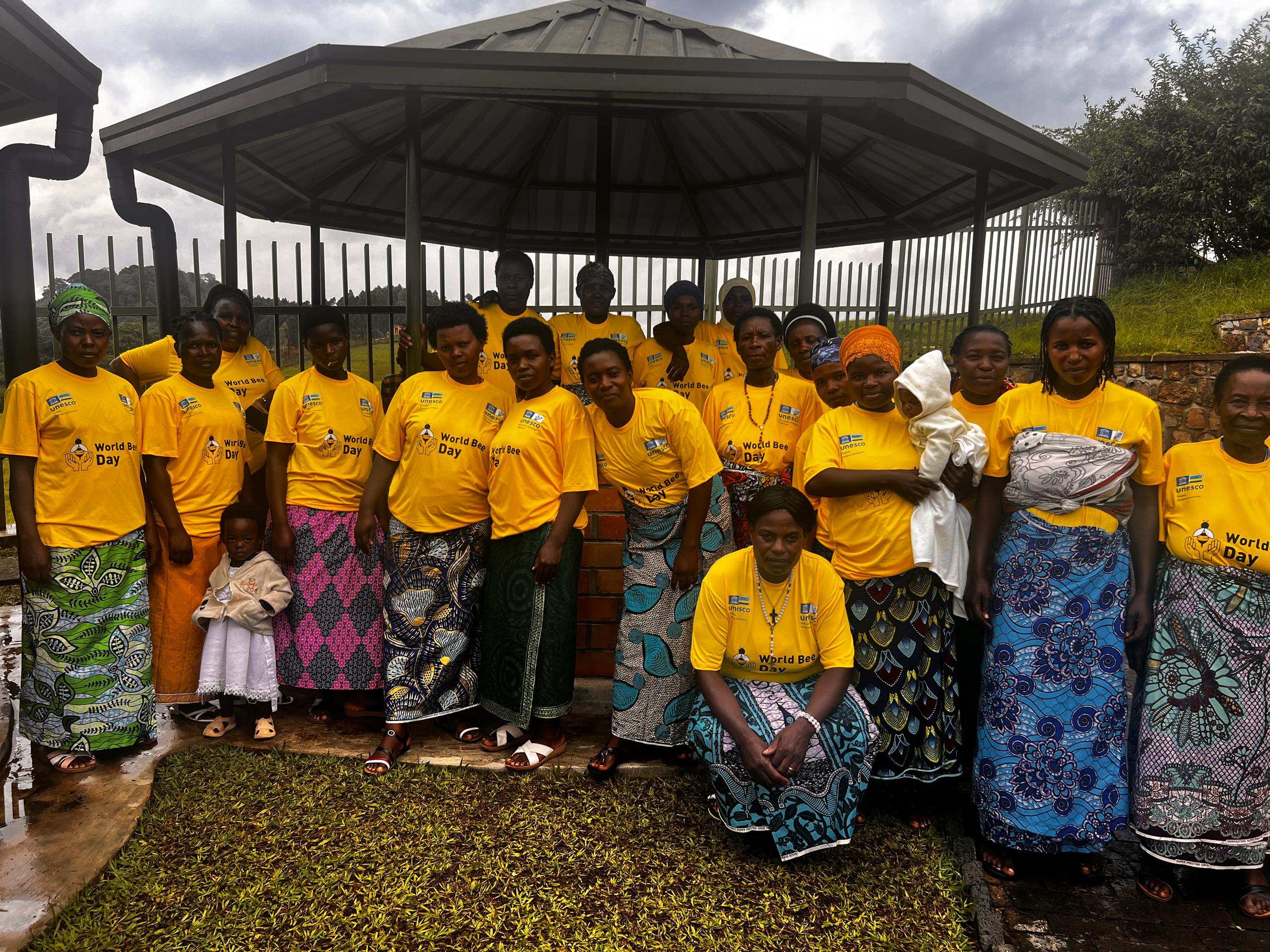
Rwanda Agricultural Board (RAB) has advised farmers to apply pesticides in ways that minimize harm to bees such as spraying at night or before crops bloom.
This event gathered trained men and women, students, young beekeepers, and various stakeholders with knowledge on bee biology, habitats, feeding patterns, and reproduction.
Same as
Some banned agricultural pesticides by the EU are being Ccnsumed by Africans
Would you like to partner with us to promote your initiatives?
Call us at: +250784581663
Email: Greenafrica393@gmail.com and juvekwizera@gmail.com

